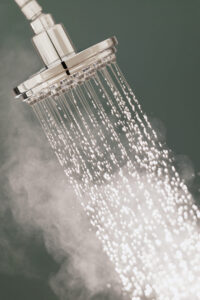
Can a heatwave affect your plumbing? The answer is yes, but there are ways to mitigate any potential issues.
When temperatures soar during a heatwave, we often think about the discomfort, health risks, and increased energy bills. However, another area that can be significantly affected is your plumbing system. Extreme heat can put a strain on your plumbing in ways you might not expect. Here’s a detailed look at how a heatwave can impact your plumbing and some tips to mitigate potential problems.
Increased Water Demand
During a heatwave, the demand for water skyrockets. People tend to use more water for drinking, bathing, watering lawns, and filling pools. This increased demand can put a strain on your plumbing system, leading to lower water pressure and even potential shortages in some areas. Municipal water systems may also experience stress, resulting in restrictions on water usage.
Tip: To conserve water, consider taking shorter showers, fixing leaks promptly, using drought-resistant plants for landscaping, and following any local water usage guidelines.
Pipe Expansion and Contraction
Extreme heat can cause pipes to expand and contract, especially if they are exposed to direct sunlight. This can lead to cracks, leaks, or even burst pipes, particularly in older plumbing systems or those made from materials that are more susceptible to temperature changes.
Tip: Insulate exposed pipes to protect them from direct sunlight and extreme temperatures. Check your plumbing regularly for any signs of leaks or damage and address issues immediately.
Sewer Line Issues
Heatwaves can exacerbate problems in your sewer lines. High temperatures can cause the ground to dry out and shift, leading to cracks or breaks in sewer lines. Additionally, tree roots, seeking moisture, may invade sewer lines more aggressively during hot, dry periods, causing blockages and backups.
Tip: Have your sewer lines inspected regularly, especially during prolonged heatwaves. Consider installing root barriers to protect your sewer lines and have a professional plumber address any signs of sewer line damage immediately.
Water Heater Strain
Water heaters can experience added stress during a heatwave as they work harder to maintain the desired water temperature. High ambient temperatures can make the water heater’s job more difficult, potentially leading to overheating or failure.
Tip: Ensure your water heater is well-maintained and serviced regularly. Consider adjusting the thermostat to a lower setting during heatwaves to reduce the strain on the system.
Increased Risk of Mold and Mildew
While heatwaves are characterized by high temperatures, they can also bring about increased humidity, especially in areas with a high water table or near bodies of water. This combination of heat and humidity can create ideal conditions for mold and mildew growth, particularly in damp areas like basements, crawl spaces, and around plumbing fixtures.
Tip: Use dehumidifiers in areas prone to moisture accumulation. Ensure proper ventilation in bathrooms and kitchens, and promptly address any leaks or water damage to prevent mold and mildew growth.
Outdoor Plumbing Concerns
Outdoor plumbing fixtures, such as hoses, sprinklers, and irrigation systems, can also be affected by extreme heat. Rubber hoses and plastic components can deteriorate faster when exposed to prolonged high temperatures, leading to leaks and water waste.
Tip: Store hoses and other outdoor plumbing equipment in a shaded area when not in use. Regularly inspect and maintain your irrigation system to ensure it’s functioning efficiently and not wasting water.
Preparing Your Plumbing for a Heatwave
Being proactive can help you avoid many of the plumbing issues associated with heatwaves. Here are some steps you can take to prepare your plumbing system for extreme heat:
- Inspect Your Plumbing: Regularly check for leaks, corrosion, or other signs of damage. Pay special attention to exposed pipes and outdoor fixtures.
- Insulate Pipes: Use pipe insulation to protect pipes from extreme temperatures and reduce the risk of expansion and contraction damage.
- Maintain Your Water Heater: Schedule regular maintenance for your water heater to ensure it’s functioning efficiently and adjust the thermostat as needed.
- Conserve Water: Implement water-saving practices to reduce the strain on your plumbing system and local water supply.
- Monitor Sewer Lines: Have a professional inspect your sewer lines regularly and address any root intrusion or damage promptly.
Call Mahon Plumbing Today
If you still have more questions regarding your plumbing, we here at Mahon Plumbing are here to help. We have been serving the wider Baltimore area since 1994, so we have 25 years of experience to back up our fantastic service! Call us at our Baltimore location at 410-766-8566 or our Pasadena location at 410-636-7944. Be sure to keep up with us on social media by following us on Facebook or Twitter.
This entry was posted on Friday, July 12th, 2024 at 11:07 am. Both comments and pings are currently closed.